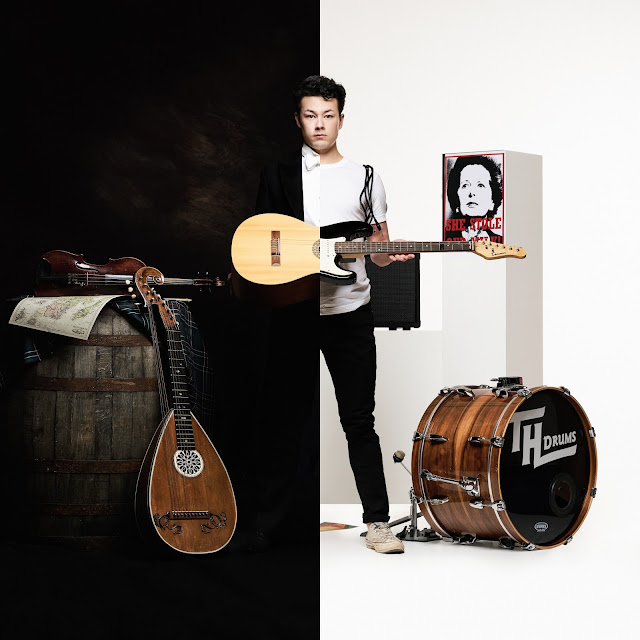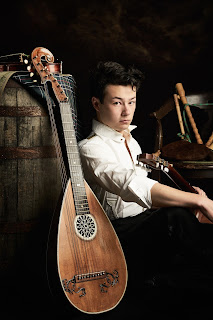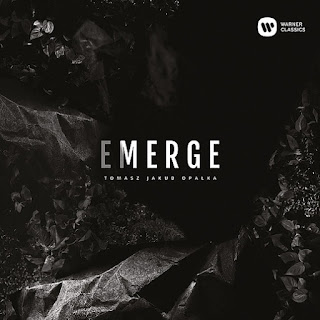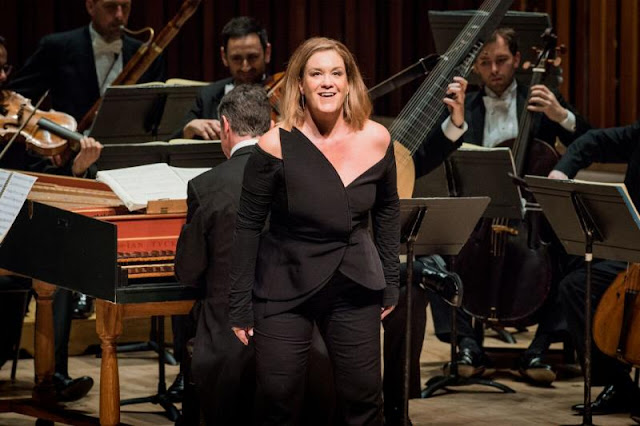The young British conductor George Jackson makes his Hamburg State Opera debut conducting a new opera, Immer weiter, by two composers.
 |
| Conductor George Jackson |
On 7 July 2017, the young British conductor George Jackson makes his debut at Hamburg State Opera conducting the premiere of a new opera, Immer Weiter a new collaboration between the two young composers, Jesse Broekman (Dutch) and Irene Galindo Quero (Spanish) with each taking responsibility for part of the opera. But the whole piece is the result of a wider collaboration as 15 cultural creators from the fields of composition, stage direction, set design, dramaturgy, conducting and culture management came together to create a new work as part of the Deutsche Bank Foundation's Academy Musical Theatre Today („Akademie Musiktheater heute“ der Deutsche Bank Stiftung). I talked to George via Skype from Wiesbaden to find out more about the opera.
 |
| Composer Jesse Broekman |
He admitted that there was a danger when using two composers for a single piece, but he felt that though the two composers are different stylistically their music fits well and the piece has no major danger points. The work started on the opera in 2014 when the Deutsche Bank Foundation selected the 15 young creators, with two or three from each discipline and they engaged in a two and a half year process of collaboration. George was involved in all of the planning, the discussions about what was to go into the opera, what was to go into the text. But his involvement ramped up from the end of April this year when the score was delivered and he goes into rehearsals at the end of this month.
The work uses seven soloists (one soprano, one mezzo-soprano, two tenors, one baritone and one bass) with a reasonable size chamber ensemble (accordion, violin, two violas cello, flute, clarinet and trombone, plus extensive percussion).
 |
| Composer Irene Galindo Quero |
The text has taken five different poems which are put together in a series of fragments, George described it as lots of people doing different things but coming together ultimately. The title come from
Lev Rubinstein's collection,
Immer weiter und weiter, and Rubinstein's poems are used alongside those of the Slovenian poet
Aleš Šteger. The texts explore the themes of dystopia, the relationship of the individual to society and the sense of anonymity. Rubinstein's short texts were originally written on small library cards, often beginning 'Someone ..', and this sort of anonymity is a feature of the way the composers have set the text, so there are no character names.
George feels that the music shows great influences from
Helmut Lachenmann and from musique concrete, often the instruments are manipulated rather than played, creating a feeling of dystopia via an atmospheric background which evokes electronic music. The players will be from the
Hamburg Philharmonic Orchestra (which plays at Hamburg State Opera), and whilst George will be going into detail with the performers he is aware that he will also need to be aware of the overall soundworld of the piece.
This intriguing new opera which seems to reflect concerns with a dystopian vision of society opens at Hamburg State Opera on 7 July 2017 in the opera's smaller studio theatre, Opera Stabile, and there are a number of performances. (Further details from the
Hamburg State Opera website).
When I last saw George conducting it was in May 2016 at one of Trinity Laban's Side by Side events where the Trinity Laban Symphony Orchestra performed alongside members of Welsh National Opera Orchestra in a Elgar's
Symphony No. 1 (see
my article). When we spoke for this article he was just back from Romania where he was conducting Elgar's
Enigma Variations with the
Transylvanian Philharmonic (based in Cluj) and this was very much like a new piece for them, so George felt he was responsible for selling the work to both the audience and to the orchestra. He has a regular relationship with the
Haydn Orchestra of Bolzano and Trento and will be opening the
Bolzano Festival in this Summer with the orchestra in a programme which includes Mendelssohn's
Scottish Symphony. From the Autumn George has a new position, Studienleiter and Assistant Conductor at the
Theater an der Wien in Vienna, where his first assignment will be working on Robert Carsen's new production of Berg's
Wozzeck (which opens on 15 October 2017, conducted by Leo Hussain with Florian Boesch in the title role, see the
theatre's website).







































